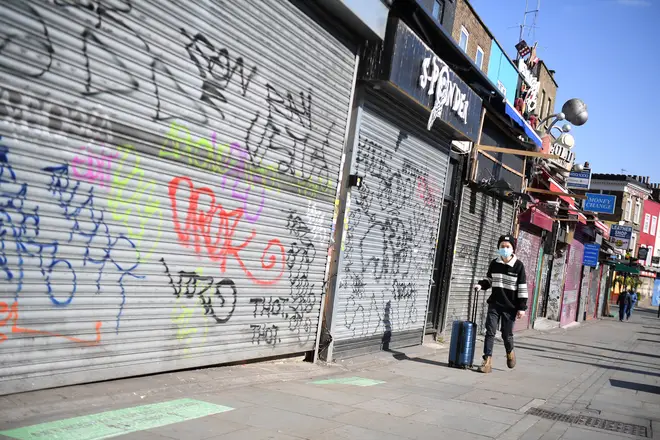
Henry Riley 7pm - 10pm
12 August 2020, 07:23 | Updated: 12 August 2020, 07:27

Britain has officially entered into recession after the coronavirus crisis saw the economy contract by a record 20.4 per cent between April and June, the Office for National Statistics has said.
The Office of National Statistics (ONS) confirmed the second three-month period of decline in the nation's Gross Domestic Product (GDP) and the worst second-quarter contraction in western Europe.
The rapid plummet of GDP follows a 2.2 per cent fall from January to March, marking the first consecutive periods of decline since 2009.
A recession is defined as two successive quarters of decline in GDP, which has not been seen in the UK since 2008 and 2009 during the financial crisis.
Commenting on today’s GDP and productivity figures for June and the 2nd quarter, ONS Deputy National Statistician for Economic Statistics Jonathan Athow said:
“The recession brought on by the coronavirus pandemic has led to the biggest fall in quarterly GDP on record.
“The economy began to bounce back in June with shops reopening, factories beginning to ramp up production and housebuilding continuing to recover. Despite this, GDP in June still remains a sixth below its level in February, before the virus struck.
“Overall, productivity saw its largest ever fall in the second quarter. Hospitality was worst hit, with productivity in that industry falling by three quarters in recent months.”
Shadow chancellor Anneliese Dodds tweeted: "We've already got the worst excess death rate in Europe - now we're on course for the worst recession too.
"That's a tragedy for our country and it's happening on the PM's watch. A downturn was inevitable after lockdown - Johnson's jobs crisis wasn't."
Read more: What is a recession and what does it mean for you?

UK plunges into recession: David Buik analyses GDP figures
As we reported yesterday ONS data showed around 730,000 UK workers have been removed from the payrolls of British companies since March when the coronavirus lockdown began in a sign of the toll taken on the economy by the pandemic.
Employment also dropped by the largest amount in a quarter since 2009 between May and June.
It comes amid reports Rishi Sunak may consider delaying his autumn budget in the event of a second spike of the virus.
The Chancellor is understood to be keen to begin the process of rebuilding the economy from the impact of the pandemic, the Financial Times reported, but is apprehensive about committing to spending if further lockdowns are necessary.